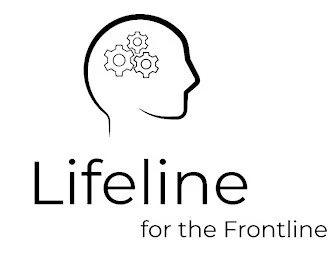Boundaries: The Discomfort You Need for Healthy Relationships
Boundaries are one of the most essential tools for healthy relationships—and one of the most misunderstood.
We talk about setting them, respecting them, holding them. But the truth is: boundaries are uncomfortable. They stir up fear, guilt, vulnerability, and sometimes conflict. For many of us, that discomfort is enough to avoid them altogether.
But without boundaries, relationships don’t thrive. They blur, break down, or burn out.
Why Are Boundaries So Hard?
Setting a boundary means acknowledging a limit, and that often feels risky. We worry:
“Will they be mad at me?”
“Will I seem selfish?”
“What if they leave?”
“I don’t want to hurt anyone’s feelings.”
This is especially hard for people pleasers—those of us who’ve learned to stay safe by being agreeable, accommodating, or overly available. People pleasing often masks fear of rejection, abandonment, or disapproval.
So instead of drawing a boundary, we:
Say yes when we mean no
Avoid difficult conversations
Tolerate mistreatment to “keep the peace”
Bottle up resentment until it explodes
This doesn't protect the relationship—it corrodes it.
The Other Side: When We Weaponize Boundaries
Sometimes, in an effort to protect ourselves, we use boundaries to control, punish, or manipulate rather than to connect with clarity. This might look like setting “boundaries” that are actually ultimatums, cutting people off without communication or warning, using the language of boundaries to justify emotional shutdown, framing selfishness or avoidance as self-care. A healthy boundary isn’t a wall or a weapon—it’s a bridge. It says: “Here’s what I need to stay in this relationship in a way that’s honest and sustainable. Misusing boundaries to avoid responsibility, dominate a dynamic, or shut people out causes just as much damage as not setting them at all.
The Unspoken Truth: Boundaries Are Uncomfortable for Everyone
Here’s the part we don’t talk about enough:
It’s uncomfortable to set boundaries with others.
It’s uncomfortable when someone sets a boundary with us.
It’s uncomfortable to realize we’ve been overstepping someone’s limits.
It’s uncomfortable to enforce a boundary when it's tested.
Sometimes, when someone tells us no, we feel rejected or even ashamed. Sometimes we take it personally. But a boundary is not a rejection of us—it’s an expression of what the other person needs to stay true to themselves.
Healthy relationships require us to tolerate that discomfort without making it mean something it doesn’t.
So Why Are Boundaries Worth It?
Because boundaries create:
Clarity: You know where you stand and what’s expected.
Trust: Consistent boundaries build emotional safety.
Respect: They affirm that both people’s needs matter.
Resilience: Boundaries reduce resentment and emotional burnout.
Authenticity: You don’t have to pretend or perform to feel accepted.
How to Start Practicing Healthier Boundaries
Get Clear on What You Need: You can’t set a boundary if you’re unsure what’s not working for you.
Start Small: Practice saying no or asking for what you need in low-stakes situations.
Expect Discomfort: It doesn’t mean you’re doing it wrong—it means you’re doing something brave.
Watch Your Language: Use boundaries to communicate, not control. “I need some time to recharge” lands differently than “You’re always overwhelming me.”
Respect Others’ Limits Too: Let go of the need to be liked or validated when someone else draws a line. It’s not rejection—it’s responsibility.
Final Thoughts: Discomfort ≠ Disconnection
Boundaries aren’t about building distance—they’re about creating space where connection can be honest and sustainable.
Yes, boundaries are uncomfortable. But that discomfort is a small price to pay for the freedom, trust, and mutual respect they allow.
The next time you hesitate to set a boundary—or feel hurt by someone else’s—pause. Breathe. And remember: boundaries are not the end of the relationship. They're often where the real one begins.
Working with a therapist offers a safe, supportive space to explore your thoughts, emotions, and patterns—so you can grow, heal, and feel more like yourself again. Whether you're navigating stress, relationships, or simply want to understand yourself better, therapy can help.
Click here to book a session and begin your journey.

